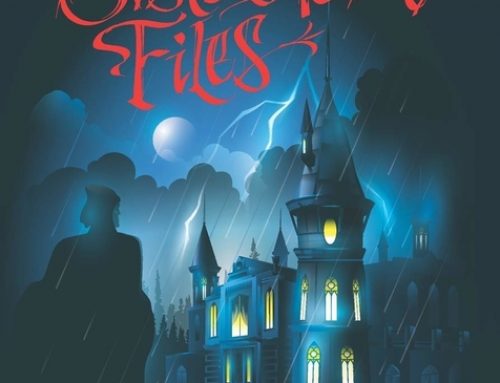
Let me clarify the exact bit of territory I want to defend.
First, when I ask if the writer’s job is recording or creating, certain easy and obvious answers come up:
* Journalists mostly record, though they can do it creatively.
* Essayists and article writers can slide back and forth between recording and creating.
* Fiction writers create, though there may be a bit of recording in some of their work.
In this post, I’m only going to talk about fiction writers and the specific territory I want to defend is this:
Even if a fiction writer uses real life settings, or even, at times, real life people in their work, they should always have the creation dial set at max and the recording dial turned way down.
Some of you might consider that last sentence as being too obvious to need any discussion.
Some of you might want to start an argument with me.
I’ll address my defense to the people who want to argue. The rest of you might wonder what the heck there is to argue about. Fiction is creation, and that’s that. Well…
Some fiction writers feel that their job is to record life; maybe do it with some creativity, but capturing what exists and rendering it is their prime function. I, almost violently, disagree.
I’ll include a link here to an article on Naturalistic Literature but not as any sort of proof of what I want to say. It’s merely to give you an example of the worst type of fiction writer–not necessarily worst as far as how they use words (they may be quite literary) but worst because of what their writing says about humanity.
Naturalistic literature gives what some folks might say is a true picture of the human condition, an almost scientific recording of the plight of certain people. Well, even a highly creative fiction writer might include a rather reportorial rendition of someone in their work; but, if they are true creators, they’ll find a way to infuse what may be sordid or terrifying conditions with a sense of underlying hope or faith. Let me try a short, and simplistic, example:
Take a character who’s a day laborer, beats his wife and children, and discovers he has terminal cancer.
The naturalist would merely record the conditions and have the character die off. The reader would receive no more value than if they actually knew such a person and stood by and watched the man come home every day, beat his wife and kids, then die of cancer.
The creative writer could take the same character and use their circumstances to show any number of human principles that could raise the man’s actions and death to a level that could inspire the reader–possibly to help abused women and children, or investigate the relationship between anger and cancer, or at least serve as moral food for thought.
My firm belief is that fiction’s proper purpose is to help humanity raise its sights, improve its situation, and strengthen its resolve to make life really matter…
I’m not trying to advocate some sort of sterile, moralistic fiction. We still need a damn good read and we don’t need a book telling us how to live our lives. Still… Showing the reader that even the worst conditions can hold some promise for improvement, even if the characters fail miserably to attain that promise, is, to me, a job that fiction writers should always be working to master.
Would you want read a book in which the characters always fail at life?
Would you like to read a story that had a few characters who failed but you still had your feelings affected in a way that helped you, in your own life, to understand or heal or help?
O.K. That’s as far as I can take my foray into this dangerous territory; at least, in this post…
~~~~~~~~~~~~~~~~~~~~~~~~~~~~~~~~~~~~~~~~~~~~~~~~~~~~~~~~~
Follow the “co-author” of Notes from An Alien, Sena Quaren:
On Facebook
On Twitter
Buy on Amazon
Get an Editorial Review | Get Amazon Sales & Reviews | Get Edited | Get Beta Readers | Enter the SPR Book Awards | Other Marketing Services






















I think once you accept that what happens in books at best can be described as ‘realistic’ you have your answer here. All writing is fiction. Even with the very best of intentions you fictionalise, you take real life events and try to find words to match them. No words can express how I felt when my parents died. We actually say that in so many words as if the expression “No words can express how I feel” somehow articulates how we feel. Words are so inadequate and yet they’re also wonderful because the lies on the page when brought in contact with the ideal reader produce something we like to think of as truth. It really is amazing how that happens.
As regards failure all I can do is point you to the writings of Samuel Beckett. I don’t think he wrote a single character that succeeded at anything other than failing: “Ever tried. Ever failed. No matter. Try again. Fail again. Fail better.” (Worstward Ho). Granted he’s the exception rather than the rule but I’m not a huge fan of the happy ending—hated with a vengeance what they did with Blade Runner—because they’re either not true to life or they story’s been cut short and if we just hung around for another few chapters we’d see what really happened.
Writing to my mind should be all about meaning. It doesn’t have to be cheery and optimistic. It can present the bleakest of futures (e.g. The Road) but we don’t have to go there. The characters on the page are our proxies. They get to experience these possible futures for us so that we can (hopefully) learn from than and not go down that path.